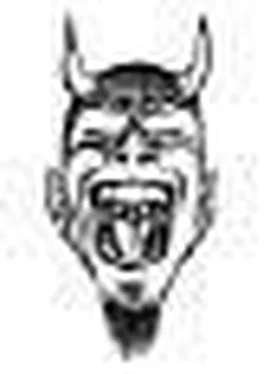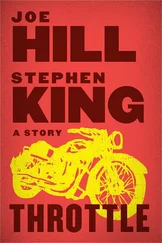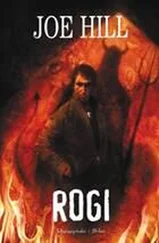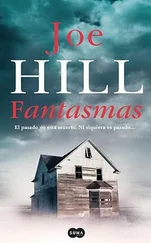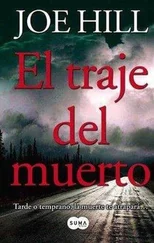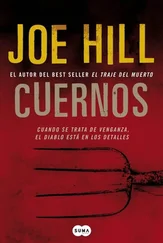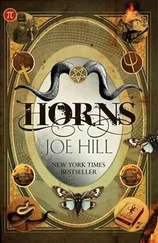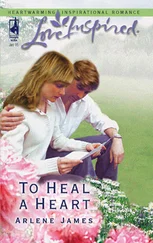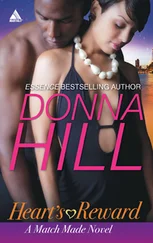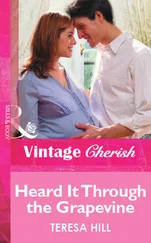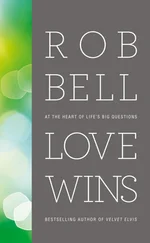“Do you want me to call the police?” Danny asked. He was finding his footing now. His voice wasn’t so winded, had regained some of its self-assurance.
“No.”
“She’s making threats on your life.”
“Who says?”
“You do. Me, too. I sat right here and heard the whole thing.”
“What did you hear?”
Danny stared for a moment, then lowered his eyelids and smiled in a drowsy kind of way. “Whatever you say I heard.”
Jude grinned back, in spite of himself. Danny was shameless. Jude could not, at the moment, recall why it was he sometimes didn’t like him.
“Naw,” Jude said. “That’s not how I’m going to deal with this. But you can do one thing for me. Anna sent a couple letters after she went home. I don’t know what I did with them. You want to poke around?”
“Sure, I’ll see if I can lay a hand on them.” Danny was eyeing him uneasily again, and even if he had recovered his humor, he had not got back his color. “Jude…when you say that’s not how you’re going to deal with this…what’s that mean?” He pinched his lower lip, brow screwed up in thought again. “That stuff you said when you hung up. Talking about sending people after her. Going down there yourself. You were pretty pissed. Like I’ve never heard you. Do I need to be worried?”
“You? No,” Jude said. “Her? Maybe.”
9
His mind leapedfrom one bad thing to another, Anna nude and hollow-eyed and floating dead in scarlet bathwater, Jessica Price on the phone— You’re goin’ to die, and it’s goin’ to be his cold hand over your mouth —the old man sitting in the hall in his black Johnny Cash suit, slowly lifting his head to look at Jude as Jude walked by.
He needed to quiet the noise in his head, a thing usually best accomplished by making some noise with his hands. He carried the Dobro to his studio, strummed at it experimentally, and didn’t like the tuning. Jude went into the closet to look for a capo to choke the strings and found a box of bullets instead.
They were in a heart-shaped box—one of the yellow heart-shaped boxes his father used to give to his mother, every Valentine’s Day and every Mother’s Day, on Christmas and on her birthday. Martin never gave her anything else—no roses or rings or bottles of champagne—but always the same big box of chocolates from the same department store.
Her reaction was as unvarying as his gift. Always, she smiled, a thin, uncomfortable smile, keeping her lips together. She was shy about her teeth. The uppers were false. The real ones had been punched in. Always, she offered the box first to her husband, who, smiling proudly, as if his gift were a diamond necklace and not a three-dollar box of chocolates, would shake his head. Then she presented them to Jude.
And always Jude picked the same one, the one in the center, a chocolate-covered cherry. He liked the gloosh of it when he bit into it, the faintly corrupt, sticky-sweet sap, the rotten-soft texture of the cherry itself. He imagined he was helping himself to a chocolate-covered eyeball. Even in those days, Jude took pleasure in dreaming up the worst, reveled in gruesome possibilities.
Jude found the box nestled in a rat’s nest of cables and pedals and adapters, under a guitar case leaned against the back of his studio closet. It wasn’t just any guitar case, but the one he’d left Louisiana with thirty years before, although the used, forty-dollar Yamaha that had once occupied it was long gone. The Yamaha he had left behind, onstage in San Francisco, where he’d opened for Zeppelin one night in 1975. He’d been leaving a lot of things behind in those days: his family, Louisiana, swine, poverty, the name he’d been born with. He did not waste a lot of time looking back.
He picked the candy box up, then dropped it just as quickly, his hands going nerveless on him. Jude knew what was in it without even opening it, knew at first sight. If there was any doubt at all, though, it fled when the box hit the ground and he heard the brass shells jingle-jangle inside. The sight of it caused him to recoil in an almost atavistic terror, as if he’d gone digging through the cables and a fat, furry-legged spider had crawled out across the back of his hand. He had not seen the box of ammo in more than three decades and knew he’d left it stuck between the mattress and the box spring of his childhood bed, back in Moore’s Corner. It had not left Louisiana with him, and there was no way it could be lying there behind his old guitar case, only it was.
He stared at the yellow heart-shaped box for a moment, then forced himself to pick it up. He pulled off the lid and tipped the box over. Bullets spilled onto the floor.
He had collected them himself, as avid for them as some children were for baseball cards: his first collection. It had started when he was eight, when he was still Justin Cowzynski, years and years before he’d ever imagined that someday he would be someone else. One day he was tramping across the east field and heard something snap underfoot. He bent to see what he’d stepped on and picked an empty shotgun shell out of the mud. One of his father’s, probably. It was fall, when the old man shot at turkeys. Justin sniffed the splintered, flattened case. The whiff of gunpowder itched his nostrils—a sensation that should’ve been unpleasant but which was strangely fascinating. It came home with him in his dungaree pocket and went into one of his mother’s empty candy boxes.
It was soon joined by two live shells for a .38, swiped from the garage of a friend, some curious silver empties he had discovered at the rifle range, and a bullet from a British assault rifle, as long as his middle finger. He had traded for this last, and it had cost him dear—an issue of Creepy with a Frazetta cover—but he felt he had got value for value. He would lie in bed at night looking his bullets over, studying the way the starlight shone on the polished casings, smelling the lead, the way a man might sniff at a ribbon scented with a lover’s perfume; thoughtfully, with a head full of sweet fantasy.
In high school he strung the British bullet on a leather thong and wore it around his throat until the principal confiscated it. Jude wondered that he had not found a way to kill someone in those days. He’d possessed all the key elements of a school shooter: hormones, misery, ammunition. People wondered how something like Columbine could happen. Jude wondered why it didn’t happen more often.
They were all there—the crushed shotgun shell, the silver empties, the two-inch bullet from the AR-15, which couldn’t be there, because the principal had never given it back. It was a warning. Jude had seen a dead man in the night, Anna’s stepfather, and this was his way of telling Jude that their business was not done.
It was a crazy thing to think. There had to be a dozen more reasonable explanations for the box, for the bullets. But Jude didn’t care what was reasonable. He wasn’t a reasonable man. He only cared what was true. He had seen a dead man in the night. Maybe, for a few minutes, in Danny’s sun-splashed office, he’d been able to block it out, pretend it hadn’t happened, but it had.
He was steadier now, found himself considering the bullets coolly. It came to him that maybe it was more than a warning. Perhaps it was also a message. The dead man, the ghost, was telling him to arm himself.
Jude considered the .44, his Super Blackhawk, in the safe, under his desk. But what would he shoot at? He understood that the ghost existed first and foremost within his own head. That maybe ghosts always haunted minds, not places. If he wanted to take a shot at it, he’d have to turn the barrel against his own temple.
Читать дальше
